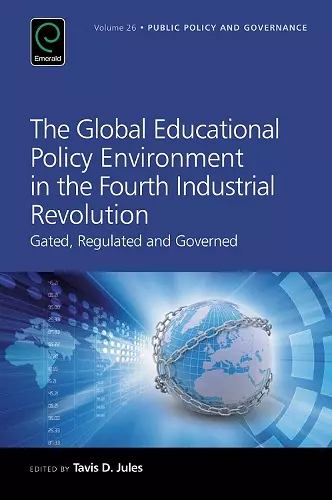The Global Educational Policy Environment in the Fourth Industrial Revolution
Gated, Regulated and Governed
Format:Hardback
Publisher:Emerald Publishing Limited
Published:21st Dec '16
Currently unavailable, and unfortunately no date known when it will be back

This volume focuses on the rise of educational regulation and educational governance in a post-2015 era. Across the globe, unfettered globalization is being curtailed and cooperation and collaboration at the regional level appears to be at an unprecedented high, yet there are still substantial disparities across national levels in education, social, political, and economic sectors. This volume investigates the nexus between national policy mandates, regional aspirations and international benchmarks and commitments. In doing so, it uses a critical educational policy studies approach to examine the various scales of the politics of education to explain how changes in the global and political economy influences national educational policies and practices. Thus, the politics of education within small (and micro) states is linked to various educational agenda settings and attitudes within the national and regional policy environment and the actors and institutions that shape these agendas. Chapters within this volume explain at what scale policy decisions are taken within the policy environment and who has the authoritative allocation of values.
Contributed by education and other researchers from around the world, the 11 chapters in this volume examine the governance of national education systems in the context of the fourth industrial revolution, or the digital age, particularly in the Global South. They consider how the hollowing out of the state under New Public Management created post-bureaucratic practices of education governance; the processes of governance that private and public, state and non-state actors, agents, and institutions use in reforming education systems, such as policy borrowing in teacher accountability, international teacher assessment models, a gender equality scorecard, and corporatization of education governance; and governing systems that use different mechanisms, such as network governance, collaborative governance, regionalism, the move from growth-driven to regulatory control governance, governance of educational systems in overseas territories, and the educational evaluative state. -- Annotation ©2017 * (protoview.com) *
ISBN: 9781786350442
Dimensions: 229mm x 152mm x 23mm
Weight: unknown
336 pages